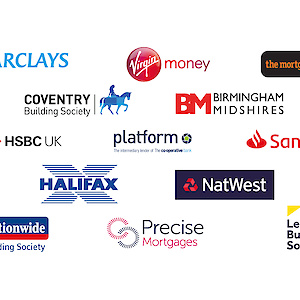


Head of Content

Mortgage Advisor & Director

Need to remortgage your home but have bad credit against your name? We can help! In this guide you will learn whether refinancing possible, what criteria you will need to meet, how to get approved with the best possible rate and more.
Can you remortgage with bad credit?
Yes. It is possible to remortgage your home with a history of bad credit. While some lenders might decline your application or offer an unfavourable deal, there are mortgage providers for customers who are refinancing with adverse credit, and they can be more flexible.
Remortgage lenders who specialise in bad credit can take a broad view of your application and offer you a deal based on factors including the circumstances surrounding your credit issues, the amount of equity you have, and the overall strength of your borrowing profile.
The ideal lender can be difficult to find in this niche situation, but the good news is that Teito’s mortgage brokers are experts when it comes to bad credit remortgages. They have deep working relationships with the lenders that offer them and can even access exclusive deals.
How difficult will it be?
You may find it more difficult to refinance compared to a homeowner who has clean credit since you will have fewer lenders and deals to choose from - but the right mortgage broker can tip the odds in your favour by highlighting all of the products that fit your requirements.
Homeowners who are refinancing with poor credit will fall into two categories:
Those who had bad credit with they took out their original mortgage
Those who have had credit issues since taking out their mortgage
If you fall into the first category, you may find it easier to remortgage than someone with new credit problems. Your mortgage lender already deemed you creditworthy despite your adverse credit, and there is a chance your credit position has improved since you took out your original home finance, as older bad credit is usually more acceptable to lenders.
Those who have had poor credit since taking out their original mortgage are more in need of professional advice, as the number of lenders you can approach will be fewer this time around, and there’s a possibility the deals available will have higher rates than your original mortgage.
Even if you decide to stick with your current mortgage provider, they will still carry out a credit check to review the specifics surrounding your credit problems.
Check whether you are eligible
Your refinance provider will essentially look at two areas of your borrowing profile when assessing your eligibility for a bad credit remortgage:
- The details surrounding your credit problems
- How closely you fit their general eligibility requirements
How your bad credit will be assessed
Your lender will review the age, severity and reason for your poor credit. Minor forms of bad credit such as late payments are unlikely to stop you from refinancing, but it can be more difficult with serious issues like bankruptcies or repossessions, especially if they are recent.
The table below groups the main forms of adverse credit based on their severity:
|
Type of Bad Credit |
Severity |
|
Not severe |
|
|
Not severe |
|
|
Not severe |
|
|
Severe |
|
|
Severe |
|
|
Severe |
|
|
Severe |
|
|
Severe |
|
|
Severe |
|
|
Multiple credit problems |
Very severe |
|
Very severe |
|
|
Very severe |
You can still remortgage and land a good deal with the more severe credit problems on your files. The number of lenders, rates and deals you can access will steadily increase the older your bad credit becomes, with the most serious issues staying on your report for 6-7 years.
Furthermore, some lenders might be more lenient if you have a reasonable explanation for your adverse credit, such as an unexpected life event like a serious illness or a redundancy.
General eligibility requirements
The number of remortgage lenders who will approve your application and the deals they will offer will also depend on how closely you meet their general eligibility criteria. They include:
- How much equity you hold: Where bad credit is involved, average equity requirements are around 15-20% but can be higher depending on the age and severity of your bad credit. See the section below for specific equity requirements for each credit issue.
- Age: This can be more relevant for remortgage applications as some lenders won’t allow the new mortgage term to stretch past your 75th birthday. Others will draw the line at 85 years old, and a smaller number of lenders have no specific upper age restrictions.
- Property type: If your property has non-standard construction features such a thatched roof, steel frame or concrete construction, a specialist lender might be required. This is more likely to be an issue if you are switching to a new lender, or if the non-standard features were added after you took out your original mortgage.
The criteria above was sourced from Criteria Brain and Knowledge Bank.
Equity requirements
The table below reveals how much equity you will need to hold to remortgage with each type of bad credit. The information was accurate at the time of writing.
|
Type of Bad Credit |
Approximate Amount of Equity Needed |
|
Late payments |
From 10% |
|
No credit history |
From 10% |
|
No credit score |
From 10% |
|
Missed payments |
From 15% |
|
Defaults |
From 15% |
|
Debt management plans |
From 15% |
|
County court judgements |
From 15% |
|
Arrears |
From 15% |
|
Individual voluntary arrangements |
Up to 30% |
|
Multiple credit problems |
Up to 40% |
|
Repossessions |
Up to 40% |
|
Bankruptcies |
Up to 40% |
Please note that the equity amounts listed above are estimates based on the average amount needed for each credit issue. The exact amount you are required to put down may vary depending on how old the issue is and other eligibility factors.
How to remortgage with bad credit

There are steps you can follow to make the process smoother and increase your chances of landing a favourable remortgage deal. Here is how to get started:
Check your credit reports: You can download your files by accessing a free trial on our Checkmyfile. Reviewing your credit reports is important as it gives you the chance to challenge any inaccuracies and have outdated information removed. Doing this can strengthen your position when it comes to filing your remortgage application.
Calculate your loan-to-value ratio: To do this, divide the amount you need to borrow by the value of the property and multiply the total by 100. This will help give you an idea of the approximate number of lenders you can approach for your application.
Speak to a mortgage broker: This is advised if you have bad credit as there are brokers who specialise in arranging remortgages for borrowers with adverse. With their knowledge, experience and lender contacts, they can find your ideal lender, boost your chances of approval and help you secure the best possible rate.
Ready to get started? Make an enquiry online to set up a free, no-obligation chat with a whole-of-market broker who specialises in remortgages for people with bad credit.
Things to consider before you apply
Below you’ll find a short list of important things to consider and talk over with your mortgage broker before you get started with your remortgage application.
Are there any quick ways to improve your credit?
This might include joining the electoral register, taking out a credit builder card and paying off the balance on time and in full each month, and settling any debts you’re in a position to clear.
Could you consolidate debt?
If your bad credit involves ongoing payments, such as a debt management plan, it may be possible to consolidate this debt into your property when you refinance. But whether you should do this is a question you must think about carefully and speak to a professional about.
On the one hand, your overall debt payments will likely come down and you may find it more palatable making one repayment than multiple; but putting debts onto your property might mean paying more interest overall, as they will be spread over the remaining mortgage term.
Will you end up with a better mortgage deal?
If your bad credit ended up on your files after you took out your original mortgage, there’s a chance the rate you are offered might be higher than the one you are on now. If, however, you had poor credit when you took out your mortgage, the situation is likely to have improved.
Find out what your new payments will look like
Having bad credit can indirectly affect your mortgage payments after you have refinanced by driving up the interest rate on your new deal. If you have an idea of the kind of rates you qualify for, you can use our calculator below to work out how your repayments might look.
Simply enter the amount you need to borrow, factoring in any equity you are releasing, the term length and an interest rate. Use the check box to specify whether the new mortgage you will be applying for is an interest-only agreement or a capital and repayment remortgage.
Available remortgage lenders
A mixture of specialist mortgage lenders and high street banks and building societies offer remortgages for people with bad credit, but what they will and won’t accept can vary.
Here is just a handful of the lenders who offer bad credit remortgages and examples of the specific criteria they use:
- Nationwide: Will let you remortgage with a bankruptcy on your credit reports, as long as the issue was discharged at least three years ago.
- Bluestone: Will disregard any county court judgements for less than £300 for remortgage customers. They allow a maximum of three CCJs to have been registered within the last three years, as long as none of them were in the last six months.
- Pepper Money: Will offer a remortgage to homeowners in debt management plans that have been in place for at least 12 months. They require proof that the DMP payments are being made on time and in full and that none of them have been missed.
- Aldermore: Will consider a remortgage application when the borrower has missed payments on a credit agreement, as long as none were in the last three months. The borrower cannot have fallen into more than two months’ arrears in the last 23 months.
- Halifax: Can potentially accept remortgage applicants with missed or late payments but will use credit scoring when making their final lending decision.
Current interest rates
The rates these lenders offer will vary depending on the type of adverse credit in question, how old it is and how much equity you have. On average, adverse credit remortgage rates can be anywhere between half a percentage point and two full percentage points higher than they would be for borrowers with clean credit.
You can compare the latest remortgage rates available across the market for free on Teito by selecting the 'Choose your own mortgage' option below:

Secure your ideal remortgage today
Remortgaging to consolidate debt

Some homeowners with bad credit choose to remortgage to consolidate debts that are related to their credit issues. There are mortgage providers who are happy to consider this, with most imposing a loan-to-value (LTV) cap of 60-85%, meaning you will need to have equity of 15-40%.
Releasing equity for this purpose when you have bad credit isn’t something you should do lightly. There are pros and cons to consider, as well as possible alternatives such as secured loans. Speak to a mortgage broker before proceeding with your application for this.
You can also find more information on debt consolidation remortgages in our standalone guide.
Refinancing a buy-to-let or commercial property
It's possible to remortgage an investment property with bad credit and the process is the same as it is for residential homes. Interest rates on buy-to-let and commercial remortgages are higher on average, as are deposit/equity requirements for these property types.
On the plus side, criteria can be more flexible, especially in the commercial market where all lending is bespoke and arranged on a case-by-case basis.
If you are remortgaging a non-residential property and have poor credit, the key thing is to seek the right advice. At Teito, we have bad credit brokers who are experts in the buy-to-let and commercial markets, so you can rest assured they will have the expertise you need.
You can read more about bad credit buy-to-let mortgages and commercial mortgages in our standalone guides through the links.
Why use Teito for your bad credit remortgage?
We are a whole-of-market mortgage brokerage with advisors who are experts when it comes to bad credit remortgages. There are Teito advisors who specialise in this area and their knowledge and lender contacts can significantly increase your chances of approval.
That’s not the only reason to choose Teito. Here are some of the other benefits:
- You can compare remortgage rates and deals online for free
- Exclusive rates and quotes are available through us
- Our bad credit mortgage brokers are 5-star rated
- We can arrange your agreement in principle in minutes
Ready to get started? Make an enquiry online to set up a free, no-obligation chat with a bad credit mortgage advisor who specialises in remortgages today.
FAQs
Yes, potentially but lenders who offer this would likely consider your adverse credit situation to be “severe”, depending on what the issues are and how long you’ve had them. This means that higher interest rates are possible and deposit/equity requirements could be up to 40%.
In complex situations like these, it is recommended that you speak to a mortgage broker.
Choosing an Adviser
Selecting a qualified and experienced mortgage adviser is of great importance. To choose a suitable adviser, evaluate their qualifications, experience, and reputation, and ensure they are regulated by the Financial Conduct Authority (FCA).
Read reviews from previous clients and make sure they provide a clear explanation of the products and services they offer, as well as the fees and charges associated with them.















































































































































